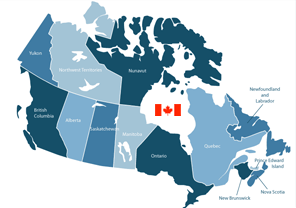Caffeine and Headache
Caffeine has various effects on the brain. If coffee can relieve an attack, withdrawal can trigger a migraine. Read on for more details!
What is the effect of caffeine on migraines? Caffeine relieves migraines (it can be found in many over-the-counter medicines) but caffeine is also said to trigger migraines... which statement is true?
Caffeine is a neuroactive substance, which means it stimulates many of the brain’s neurotransmitter systems. It IS efficient to treat migraines as this has been scientifically proven. BUT, when you ingest a lot of caffeine, the brain gets used to this continuous stimulation.
A slight decrease in caffeine levels can trigger an attack (remember: migraine sufferers do not tolerate changes well). Belated morning coffees are probably partly responsible for "weekend migraines". TIP: A recent study showed that reducing coffee intake to 2 cups a day also reduced migraine… but people who completely quit drinking coffee (except for decaf) improved even more.
If you suffer from a lot of migraines, you might want to give up coffee entirely. Health Canada recommends a maximum daily caffeine intake of 300-400 mg… you might exceed this amount faster than you think! 1
The table below shows the caffeine ratio in some food products. Refer to Health Canada’s website for more information. Caffeine Table - doses 2
Nutritional Issues and Headache
An awareness of nutritional issues that may affect migraines can be very helpful in decreasing the occurrence of headaches. People who suffer from migraines should know which foods can potentially trigger headaches, and what types of eating patterns are best for avoiding headaches. Some people know exactly what foods consistently trigger their headaches but others may not be able to accurately pinpoint their food triggers. Often a food diary is helpful in determining which foods are linked to your migraines. 3
Dr. Alexander Mauskop from the New York Headache Centre that specializes in complimentary headache treatments, discussed nutrition-provoking foods and substances such as eating to prevent headaches, identifying your triggers, alcohol, caffeine, food additives, artificial sweeteners, chocolate and tyramine-containing foods. 3
Below are the topics discussed in this PDF.
- Eating to Prevent Headaches
- Identifying Your Triggers
- Alcohol
- Caffeine
- Food Additives
- Artificial Sweeteners
- Chocolate
- Tyramine-Containing Foods
Although some people may be sensitive or intolerant to certain foods, research has not demonstrated a consistent link with tyramine, nitrites or any other food component. A true sensitivity to a food as a migraine trigger usually causes attacks repeatedly rather than occasionally. 4
Hunger and Headache
Migraine sufferers often note that missing meals can trigger headache. Long periods of time between meals may trigger migraine attacks, or cause headache to be more severe because of low blood glucose levels. The risk of developing a headache increases with the amount of time between meals. Migraine patients should make time for small frequent meals. Regular daily mealtimes, in addition to regular sleep schedules and exercise, are associated with less frequent migraines. 5
Dehydration and Headache
Mild dehydration can have an impact on people who have migraine. It is recommended that you should drink at least 8 glasses of water per day. This is in addition to any other drinks you may have. Fizzy drinks can contain the sweetener aspartame which some people link to their migraine. 6
REFERENCES
- Canadian Headache Society, Non-Drug Treatments for Headache, pg 92-94, Caffeine and Headache
- Canadian Headache Society, Caffeine Table-Doses, Non-Drug Treatments, pg 94
- New York Headache Center, New York, NY Nutrition and Headache (PDF)
- Migraine Trust, Common Triggers, Coping with headaches and migraines
- American Migraine Foundation, Diet and Headache, Hunger
- The Migraine Trust, Common Triggers, Dehydration

